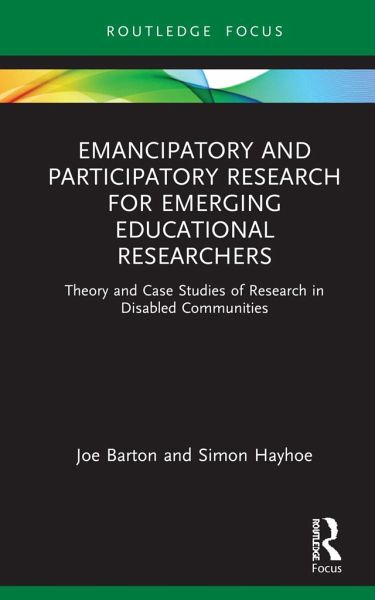
Emancipatory and Participatory Research for Emerging Educational Researchers
Theory and Case Studies of Research in Disabled Communities
Versandkostenfrei!
Versandfertig in 1-2 Wochen
63,99 €
inkl. MwSt.
Weitere Ausgaben:

PAYBACK Punkte
32 °P sammeln!
Emancipatory and Participatory Research for Emerging Educational Researchers is a concise fundamental guide on two related models of education research-emancipatory and participatory. In addition to providing an introduction to these research models, this book also studies them through the lens of critical practice as well as pure research and provides case studies as examples. It highlights a variety of data collection techniques that are used in education research, from visual methods to interviews, and the strategies researchers apply to ensure the research process involves and benefits the...
Emancipatory and Participatory Research for Emerging Educational Researchers is a concise fundamental guide on two related models of education research-emancipatory and participatory. In addition to providing an introduction to these research models, this book also studies them through the lens of critical practice as well as pure research and provides case studies as examples. It highlights a variety of data collection techniques that are used in education research, from visual methods to interviews, and the strategies researchers apply to ensure the research process involves and benefits the participants. Emancipatory and Participatory Research for Emerging Educational Researchers functions as a useful "how-to" guide for first-time and less experienced researchers. Furthermore, it highlights not only how participatory research is by its nature emancipatory but also the overlaps between the two models' approach to data collection.














